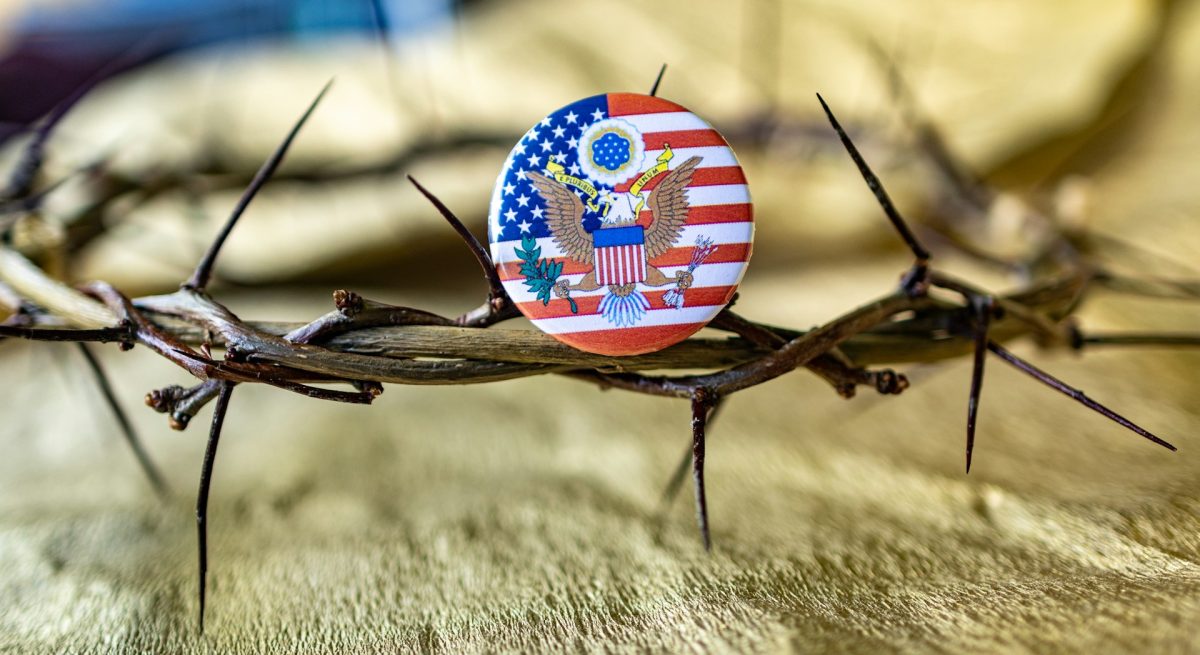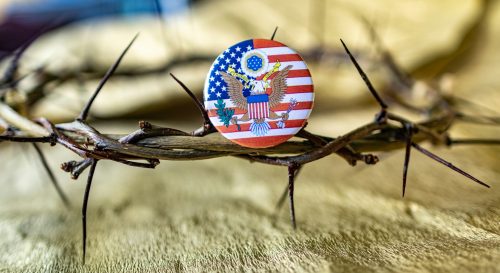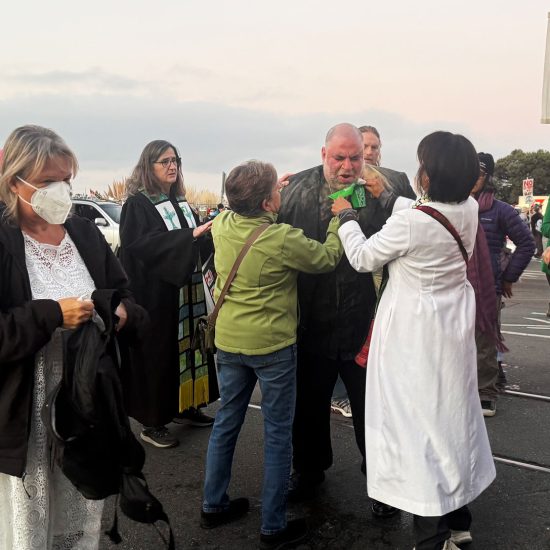
I speak frequently on Christian Nationalism. I’ve spoken in churches, on university campuses, on podcasts and webinars, and even in retirement communities and bars. For the past three years I’ve been so alarmed about the movement and its deleterious effects on our society that I’ll talk just about anywhere, whether the audience is dozens or hundreds.

Greg Carey
Although folks use the term a lot, we often suffer from conceptual fuzziness. That’s understandable. We don’t understand Christian Nationalism as we often lack the language to convey our opposition. Although researchers have discussed Christian Nationalism for a very long time, it’s fairly new to public discourse. More vexing, the label Christian Nationalism does not fit what it describes as neatly as we’d like to pretend. Most simply, Christian Nationalism describes movements that seek to impose their versions of Christian values upon government and the rest of society. Let’s clarify some points that are often misunderstood.
Christian Nationalism is indeed Christian. Lots of Christians like to reject Christian Nationalism by calling it “unchristian.” But Christian Nationalists worship Jesus and claim to follow him. They believe most of the things other Christians believe. We might criticize the movement as a perverted interpretation of Christianity. We can say the movement is wrong about Jesus and dangerous for society. We may offer all sorts of theological criticisms of Christian Nationalism, but it remains an expression of Christianity with adherents who are indeed Christian. In fact, the things Christian Nationalists do, specifically trying to create a Christian order for the rest of society, are exactly what Christianity has done for most of its history.
Christian Nationalists are not necessarily nationalist. Instead of focusing only on the United States, most of the people we would call Christian Nationalists seek to impose Christian order as they understand it on every nation. To that end, Christian supremacists network on a global basis. Rejecting the term “Christian Nationalism,” they use other language to describe themselves and their goals. Some use “dominion,” claiming that God calls Christians to take dominion over the “seven mountains of culture.” Others speak of reconstruction, theonomy, or integralism. We use the term Christian Nationalism as an imperfect shorthand to point out that they seek dominion over our particular nation.
Christian Nationalism is not monolithic. Christian Nationalists represent diverse flavors of Christianity. Many Christian Nationalists, perhaps the most visible, come from the independent charismatic stream of Christianity, often identified with the term New Apostolic Reformation. These Christians believe miracles occur frequently in their midst. They speak in tongues and offer prophecies. Other Christian Nationalists stand on the far-right wing of what we call Reformed Christianity. Their nationalist heritage goes back at least to our nation’s founding. They talk about theonomy, rule according to their interpretation of biblical law, and long to restore Christendom. Another stream, Catholic integralism, emerges from the Roman Catholic tradition. Integralists believe government should align with the ends of the church. Theologically speaking, these groups are extremely diverse. The charismatics would say the others lack the Holy Spirit. The Reformed would call the charismatics and Catholics heretics. The Catholic integralists would certainly say the others are alienated from the true Church and would not admit them to participate in the Eucharist. These divisions represent a potential weakness of the movement. However, each of these streams of Christian Nationalism has found ways to collaborate with one another and with other opponents of democracy. Somehow, they all align on politics.

Photo by Marek Studzinski on Unsplash
Christian Nationalism is not necessarily White. Many people speak of “White Christian Nationalism,” and there’s a reason. Christian Nationalists tend to hold policy views and social attitudes that are hostile to racial minorities, to immigrants, and to non-Christians. Folks who align with Christian Nationalism likely stand farther apart from the opinions of Black Christians than any other religious group. Some Christian Nationalist spokespeople have articulated views that are simply racist. (Look up “kinism.”) But we should remember that some streams of Christian Nationalism are quite culturally diverse. For example, the independent charismatic churches that preach dominionism are often the most racially integrated Protestant churches in their communities. And the Roman Catholic Church absolutely rejects racism.
Not all Christian Nationalists preach women’s subordination. Misogyny runs rampant in Christian Nationalist circles. Secretary of Defense Pete Hegseth represents the extreme view, having reposted a video in which pastors argue that women should not be allowed to vote. Hegseth belongs to a right-wing Reformed denomination, the Communion of Reformed Evangelical Churches. Meanwhile, many evangelical churches and denominations prohibit women from exercising spiritual leadership over men and teach that women should submit to their fathers and husbands. The evangelical Quiverfull movement encourages people to marry young and have huge patriarchal families. Roman Catholicism excludes women from the priesthood, and many integralists, like Vice President J. D. Vance, identify domestic life as women’s highest calling. Yet I found it remarkable when Paula White Cain, who leads the White House Faith Office, claimed that “God designed” men to lead their households. A remarkably odd thing to say, coming from a woman who identifies as a pastor and speaks with a high degree of spiritual authority. White Cain also represents independent charismatic Christianity, which features many women as pastors, apostles, and prophets. Clearly, gender remains unsettled among Christian Nationalists.
Christian Nationalism has already had a profound effect on American public life. Although survey data show that it represents a minority disposition, Christian Nationalism has moved into the centers of power and cultural influence. Despite their differences, Christian Nationalists collaborate effectively not only with one another but also with extremely wealthy donors, especially in the tech and financial sectors. The movement demands an effective, organized response.
Greg Carey is Associate Dean of the Lancaster campus and Professor of New Testament for the Moravian University School of Theology. His latest book, “Rereading Revelation: Theology, Ethics, and Resistance,” is available now.






